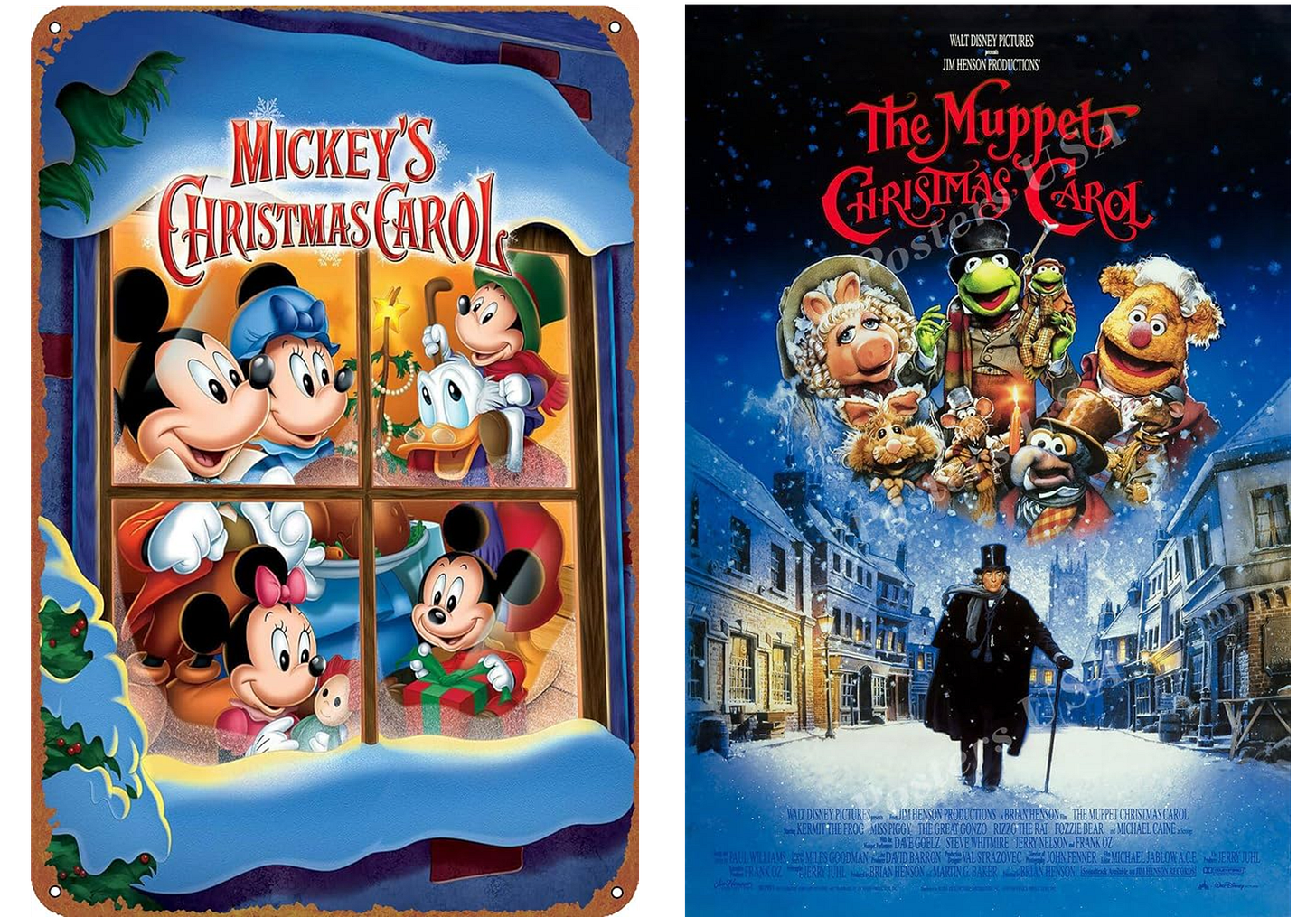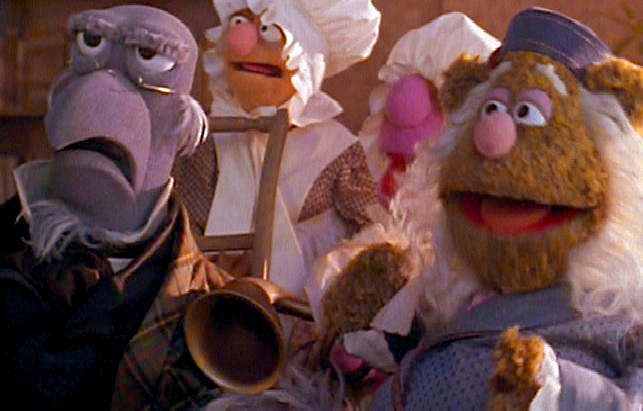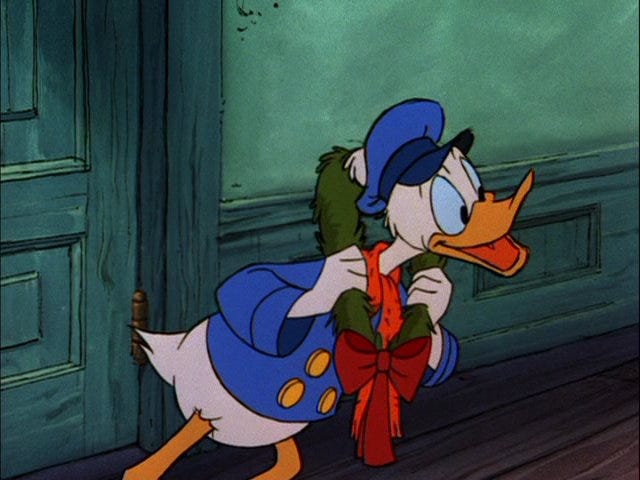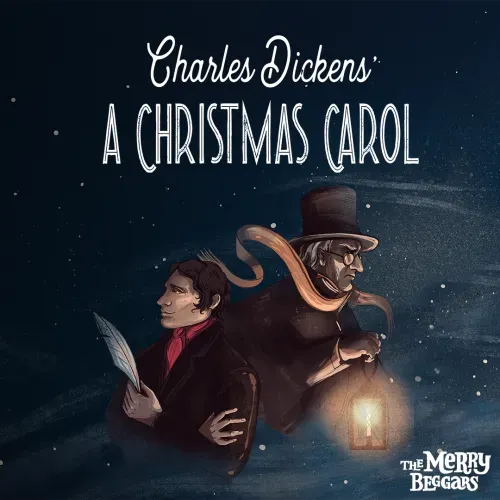A Christmas Carol has been adapted and parodied more than nearly any other story in the English language—everything from mocap CGI blockbusters to silent one-reelers.1
This Christmas, I wanted to bring you a three versions you may not have seen—past (a movie set before the writing of A Christmas Carol), present (a movie that could only be made in the modern era), and yet to come (two stories that may be, only).
Shadows of Things That Have Been
Countless movies and shows have copied the structure of A Christmas Carol, but The Man Who Invented Christmas is not one of them. It's much more akin to Shakespeare in Love, if you replace Shakespeare with Dickens, and love with daddy issues.
It's more honest about the creative process than most movies about writing, too. The ideas for characters and plots don't just pop into his head fully formed; Dickens actually has to work at it. He's easily distracted, and motivated by a combination of greed and angst.
And what angst. We find out just how Dickens knew about poverty in the Victorian era. He genuinely cared about the plight of children working in inhuman conditions.
On the flip side, it's actually quite a funny movie, if you’re familiar enough with the story he’s writing. The only other movie in this genre I'm aware of is the USC short George Lucas in Love, which, if you've never seen, now's your chance—
If that’s not post-modern enough for you, wait until you see this next movie…
Know Me Better, Man
You've definitely seen several version of a Christmas Carol, but have you seen 400 versions?
1,200 Ghosts is the kind of video project that could only exist in modern times. It would just be too difficult to gather all of these films in an analog format, and then splice them together in a coherent manner.
I find the variety of visual and performance styles fascinating. A series of “Bah, humbug”s in quick succession shows how much an actor can do with just a couple of words. It reminds me a bit of the book 99 Ways to Tell a Story (which I also highly recommend).
Speaking of variations...
Things That Will be, or Shadows of Things That May be, Only?
Mickey’s Christmas Carol and The Muppet Christmas Carol are two examples of Universal Adapter Casts—established characters "playing roles" in another story.
Typically, the entertainment of this kind of adaptation stems from the way it reflects both on the characters and the original story. When a familiar characters fits neatly into a totally different narrative, it triggers a spark of joy as we make a heretofore unknown connection between story worlds. Which is why the Muppet version is far superior to the Disney animals.
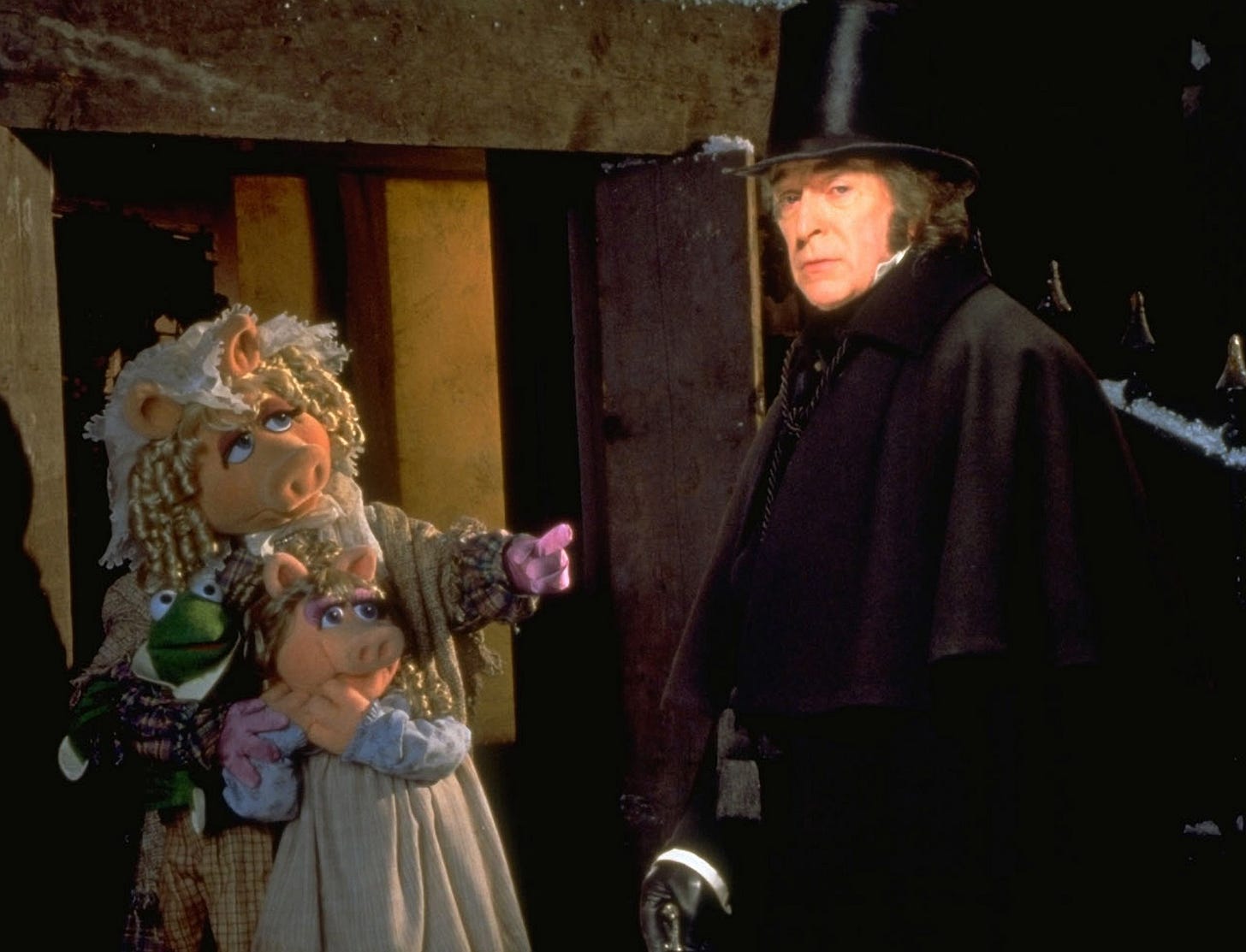
Each Muppet is carefully chosen to fit their part, based on their temperaments and relationships. Kermit is a relatable everyman, and thus plays Bob Cratchit. Miss Piggy is his love interest, so she gets to be Emily, while maintaining her prickly personality. And they were super lucky "Fezziwig" sounds so much like Fozzie.
The Disney characters, on the other hand, are assigned seemingly arbitrarily, if not in full contradiction to their core characterization. Scrooge McDuck is the lead, but it's neither clever nor interesting, since Scrooge is who he's named after anyway. Donald plays Fred for no reason other than that they're both nephews of the lead—Donald is nothing like the affable, friendly Fred.
Daisy gets shunted off into the flashbacks as Belle, since there's no other female ducks. And why the heck is Goofy Marley? That just makes no sense at all.
The Henson company decided to create original Muppets for the Christmas Ghosts, so that the audience would have no preconceived notions of them. They didn't interfere with the main story. Conversely, Disney was like, "The ghost of Christmas Present is big? Let's throw in the giant from Mickey and the Beanstalk!"
There’s just no thought or care to it. Every decision is bafflingly distracting, and none of it is compensated for with comedy. The Muppet version, by contrast, is simply hilarious.
Watching these two back-to-back offers a clear demonstration that it's rare for a film to fail as a concept; instead, you’ll find that execution is far more important.
Bonus Ghosts
The idea for this post came about because my daughter and I have been listening to the Merry Beggars adaptation of A Christmas Carol during the month of December.
Interestingly, although they released it in parts as an “audio Advent calendar,” Carol is one of Dickens’ few books that wasn’t serialized. You can listen to the whole thing on Spotify or their website.
It’s super weird that this version ends in the graveyard, without Scrooge having learned any sort of lesson.




